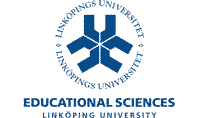|
|
| |
| SYLLABUS |
| Theories and Methods of Research, continuation course ,
7,5 ECTS Credits |
| |
COURSE CATEGORY Single Subject Course
MAIN FIELD OF STUDY Education-UV2
SUBJECT AREA Pedagogy
|
|
COURSE CODE |
|
917A06 |
|
| AIM OF THE COURSE |
After completion of the course students should give evidence of:
• Use qualitative research methods in research on learning in the natural and cultural landscape
• Show deeper knowledge of interview and observation techniques
• Account for different research approaches and analysis methods
• Reflect critically on different forms of theoretical knowledge and styles of writing
• Reflect critically on the role of the researcher in knowledge production
• Deeper knowledge of ethical considerations in research processes and in production of scientific work within the field of outdoor education
|
| CONTENTS |
| The course deals with qualitative methods and analysis for research on learning in the natural and cultural landscape. The focus is on different research approaches such as ethnographic methods, grounded theory, phenomenology and discourse analysis. In connection with these approaches different styles of writing are critically examined. Further, the role of the researcher and ethical considerations towards people under study are critically examined. |
| TEACHING |
| The work will be based on lectures, literature studies and on practical training. Moreover, seminars will be held for discussions and for account of individual and group studies. |
| EXAMINATION |
The course will be examined continuously during lectures and seminars through written accounts of results from individual studies and group-work. Towards the end of the course the course will be examined through a written research plan that will be examined during an examination seminar.
Students failing an exam covering either the entire course or part of the course two times are entitled to have a new examiner appointed for the reexamination.
Students who have passed an examination may not retake it in order to improve their grades.
Students failing an exam covering either the entire course or part of the course two times are entitled to have a new examiner appointed for the reexamination.
Students who have passed an examination may not retake it in order to improve their grades. |
| ADMISSION REQUIREMENTS |
The requirement is a master thesis (15 ECTS) in the field or in a relevant topic.Documented knowledge of English equivalent to "Engelska B"; i.e. English as native language or an internationally recognized test, e.g. TOEFL (minimum scores: Paperbased 575 + TWE-score 4.5, internetbased 90 TWE-score 20), IELTS, academic (minimum score: Overall band 6.5 and no band under 5.5), or equivalent. |
| GRADING |
| The course is graded according to the ECTS grading scale A-F |
| CERTIFICATE |
| Course certificate is issued by the Faculty Board on request. The Department provides a special form which should be submitted to the Student Affairs Division. |
| COURSE LITERATURE |
|
The course literature is decided upon by the department
in question. |
| OTHER INFORMATION |
Planning and implementation of a course must take its starting point in the wording of the syllabus. The course evaluation included in each course must therefore take up the question how well the course agrees with the syllabus.
The course is carried out in such a way that both men´s and women´s experience and knowledge is made visible and developed. |
| |
Theories and Methods of Research, continuation course
Forskningsteori och undersökningsmetoder, fortsättningskurs, avancerad nivå |
| |
Department responsible
for
the course or
equivalent:
IKK - Department of Culture and Communication |
| |
|
|
|
|
|
| Registrar No: 242/07-41 |
|
Course Code: 917A06 |
|
|
|
| |
|
Exam codes: see Local Computer System |
|
|
|
| Subject/Subject Area : Education-UV2 |
|
|
|
|
|
| |
|
|
|
|
|
| Level |
|
Education level |
|
|
Subject Area Code |
|
Field of Education |
|
| A2X |
|
Advanced level |
|
|
UV2 |
|
NA |
|
|
|
|
|
| |
